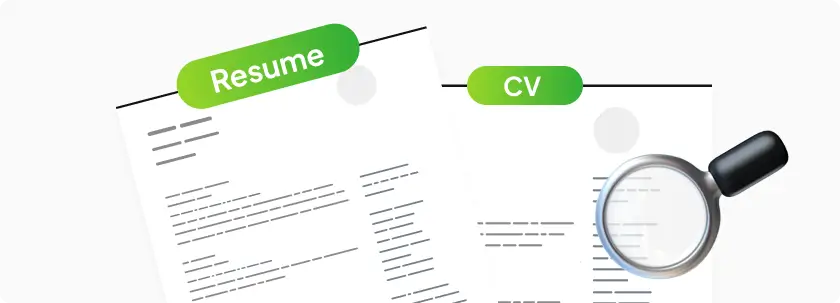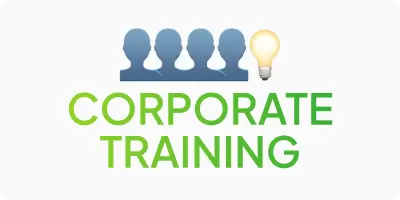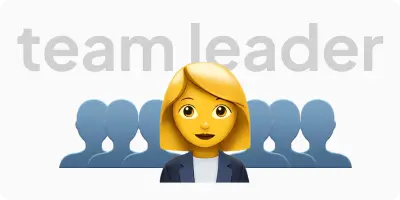
A resume is the main document that companies look for when hiring a specialist. Each of us has at least once seen a request to send a CV when looking for a job. But we always send a resume and don’t even think that these are different documents. Most people think that a resume and a CV are the same thing, but this is not the case. If an employer knows the difference between a resume and a CV and asks you to send a Curriculum Vitae (CV) and you show them your resume, it will immediately put you in an awkward position.
What is a resume?
A resume (from the French for “summary”) is a brief overview of a candidate’s professional experience, skills, and achievements. Typically, a resume for a job includes the following sections:
- Contact information
- Professional goal, why exactly a person wants to get into this position or just a brief description
- Work experience
- Education
- Skills
- Additional information (certificates, projects, volunteer experience, etc.)
The main characteristics of a resume:
- Shortness: usually resumes are no longer than 1-2 pages
- Targeted: each document is tailored to a specific job opening, emphasizing relevant skills and experience.
- Focus on achievements: includes specific accomplishments and results that demonstrate the candidate’s value.
We’ve figured out what a successful resume is, but what’s the difference from a CV?
What is CV?
A CV (from the Latin Curriculum Vitae, meaning “life story”) is a detailed document containing complete information about a candidate’s professional career. A CV usually includes:
- Contact information
- Personal statement or professional profile
- Education (including diploma papers, research projects, etc.)
- Professional experience
- Scientific publications
- Conferences and seminars
- Awards and honors
- Professional associations and memberships
- Languages spoken by the candidate
- Additional information (certificates, volunteer experience, etc.)
The main characteristics of a CV are:
- Detail: It can be several pages long, as it contains comprehensive information about the career.
- Versatility: Usually does not change depending on the vacancy, and is updated with the addition of new achievements.
- Focus on education and scientific achievements: Especially important for academic and research positions.
Comparison of resume and CV

| Parameter | Resume | CV |
| Volume | 1-2 pages | No limits |
| Target | Summary of experience and skills | Detailed description of the entire professional and academic path |
| Focus | Relevant achievements and skills for the position | All professional and academic achievements |
| Flexibility | Easy to adapt to a specific vacancy | A stable document that is updated only with the addition of new achievements |
| Where to use | Business sector, entry-level positions, middle management, career change | Academic field, scientific and research positions, grants and scholarships, international vacancies |
| The main advantage | A short and focused document | Comprehensive and detailed career overview |
| Appointment | Quickly familiarize the employer with the candidate’s qualifications | A complete overview of the professional and academic path |
This table shows that there is a difference between a resume and a cv. You can also understand that most often, when HR managers ask a candidate to send a CV, they are confused and mean a resume.
At the initial stages of getting to know a candidate, a CV is not the most relevant document. Imagine that an HR manager has to review 1000 CVs (it’s a long time). It’s much easier to quickly analyze 1000 CVs and select a certain number of candidates based on their exact characteristics.
When to choose a resume and CV?
In the table, we’ve looked at when a resume is more suitable for a job and when a CV is more suitable, but let’s look at this issue in more detail.
When to choose a resume?
- Business sector: Resumes are most often used in commercial organizations, corporations, and business environments. Here, the main task of the employer is to quickly review the candidate’s experience and skills in order to make a quick decision about a further interview. By the way, a resume is a very important element in choosing a candidate, but an interview also has a very big impact on whether you will be hired, so this skill needs to be trained.
- Entry-level and middle management positions: For positions that do not require a detailed description of academic achievements or research. For example, sales managers, marketers, accountants, and other middle managers. It would be strange if you come to a sales manager position and send the HR manager your full curriculum vitae and all the information about your university thesis.
- Career change: When transitioning to a new position in a different industry, a resume allows you to focus on transferable skills and relevant experience, helping to emphasize relevance to the new role. That is, if you want to dive into IT after working in sales, you can highlight computer skills and IT courses on your resume. This will be more relevant than describing all your experience as a sales manager.
- Frequent application submissions: For quick applications for different jobs thanks to the ability to quickly adapt the document to a specific position. Resumes can be easily modified to emphasize the skills and experience that are important for a particular job.
- Summer internships and temporary jobs: For short-term positions or internships where there is no need for a large document. This makes it much easier to find candidates.
When to choose a resume?
- Academic field: Teaching, research, and academic positions where it is important to present a complete academic track record, publications, and research. A CV allows you to describe in detail the academic activities, grants, conferences, and seminars you have participated in.
- Academic and research positions: To work in research institutes, laboratories, where you need to provide detailed information about projects, research and publications. This is important to demonstrate your scientific contribution and potential for future research.
- Grants and scholarships: For applying for research grants and academic scholarships where it is important to show all achievements and experience, including research projects, academic papers, and professional achievements.
- International jobs: For jobs abroad, where it may be standard to provide a CV, especially in European countries. In many European countries, a CV is the more acceptable form of job application.
- Positions in non-profit and public organizations: Where it is important to present a full list of professional and academic achievements. This may include volunteer work, membership in professional associations, and other forms of social activity.
- Highly specialized professions: In industries where a detailed work history and skills are critical to assessing a candidate’s qualifications, such as medicine, law, and engineering.
Conclusion
In conclusion, it should be noted that CVs are used more abroad, in highly specialized professions and for academic positions. That is, when HR managers ask to send a CV, they most often mean a resume, but they confuse these concepts (many people think that a resume and a CV are the same thing).
In most cases, it is better to use a resume, because it allows you to tailor your work experience to a specific job and make you a more attractive candidate in the eyes of the HR manager. This increases your chances of getting a job in that company and getting the position you’ve been dreaming of.












